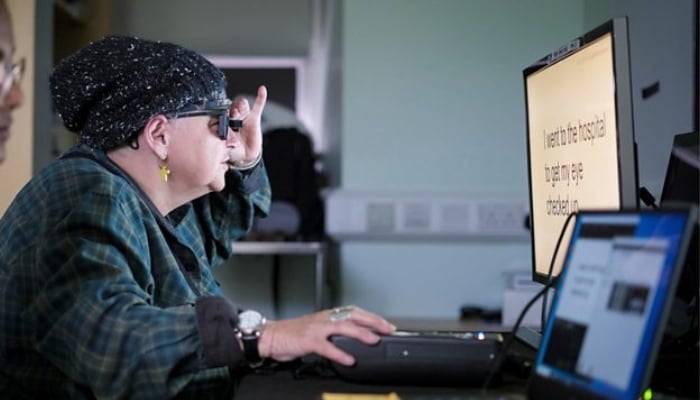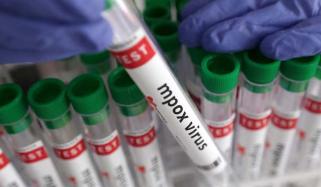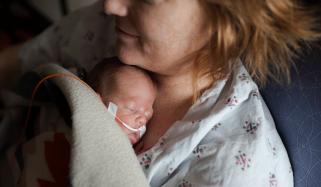
A miraculous implant at the back of the eye has allowed a group of blind patients to read once again.
As reported by the BBC, the surgeon who inserted the microchips in five patients at Moorfields Eye Hospital in London said that the results of the trial are "astounding".
The life-changing tech helps people with an advanced form of dry age-related macular degeneration (AMD), called geographic atrophy (GA), which affects over 250,000 people in the UK and around five million worldwide.
People who suffered with the conditions have cells in a tiny area of the retina at the back of the eye that gradually become damaged and die, resulting in blurred or distorted central vision.
The new procedure involves inserting a tiny 2mm-square photovoltaic microchip, with the thickness of a human hair, under the retina.
Patients then put on glasses with a built-in video camera. The camera sends an infrared beam of video images to the implant, which sends them on to a small pocket processor to be enhanced and made clearer.
The images are then sent back to the patient's brain, via the implant and optic nerve, giving them some vision again.
Moreover, the patients spent months learning how to interpret the images.
For the research, published in the New England Journal of Medicine, 38 patients with GA in five European countries took part in the trial of the Prima implant, which is made by California biotech Science Corporation.
Out of which, 32 patients were given the implant, and 27 were able to read again using their central vision. After a year, this equated to an improvement of 25 letters, or five lines, on an eye chart.
Notably, the technology would not help restore sight in people born blind, because they do not have a functioning optic nerve to pass signals to the brain.












